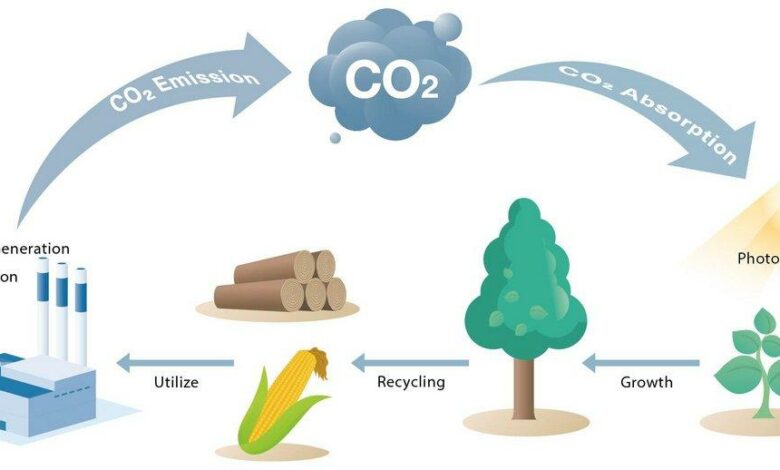Biomass Energy: Turning Organic Waste into Sustainable Power

The global demand for energy continues to rise, and the need for sustainable and renewable energy sources has become paramount in the fight against climate change. Biomass energy presents an innovative solution, harnessing the power of organic waste to generate electricity and heat, while simultaneously reducing greenhouse gas emissions. In this article, we will discuss Biomass Energy: Turning Organic Waste into Sustainable Power, its significance in the renewable energy sector, its potential role in replacing fossil fuels like oil and gas, and its impact on the power sector in the context of climate change mitigation.
Understanding Biomass Energy
Biomass energy is a crucial component of the renewable energy sector, offering a sustainable alternative to fossil fuels such as oil and gas. It involves harnessing organic waste and converting it into a valuable resource for power generation and heat production. Through various processes like combustion, gasification, and anaerobic digestion, biomass energy efficiently transforms agricultural residues, wood waste, food scraps, animal manure, and dedicated energy crops into electricity and heat.
In contrast to finite fossil fuels, biomass feedstocks can be continuously replenished through natural processes or cultivated sustainably. This renewable nature makes biomass energy an essential contributor to global efforts in mitigating climate change. As the power sector faces increasing pressure to transition to cleaner energy sources, understanding the potential and benefits of biomass energy becomes vital for fostering a greener, more sustainable future.
The Role of Biomass in Renewable Energy
In the quest for a more sustainable energy future, biomass plays a crucial role in the realm of renewable energy sources. As the world confronts the pressing challenges of climate change and the depletion of finite fossil fuels like oil and gas, the significance of harnessing biomass energy becomes evident. Biomass, derived from organic waste materials and energy crops, offers a renewable and environmentally friendly solution for power generation and heat production.
Unlike fossil fuels, which release long-stored carbon dioxide into the atmosphere, biomass energy maintains a carbon-neutral cycle. The carbon dioxide emitted during combustion is balanced by the carbon dioxide absorbed during the growth of biomass feedstocks, making it a vital tool in mitigating greenhouse gas emissions. Moreover, biomass energy can be locally sourced and cultivated, reducing the dependency on imported fossil fuels and promoting energy security.
As countries strive to diversify their energy portfolios and reduce their carbon footprints, understanding the pivotal role of biomass in the renewable energy mix is essential for building a sustainable and resilient energy future.
Biomass Energy vs. Oil and Gas
The comparison between biomass energy and traditional fossil fuels like oil and gas is a pivotal aspect of the global effort to transition towards sustainable energy sources. While oil and gas have been dominant players in the power sector for decades, their finite nature and contribution to climate change have prompted the exploration of alternative solutions. Biomass energy emerges as a compelling contender in this transition, offering distinct advantages over fossil fuels.
Renewable in nature, biomass energy utilizes organic waste materials and energy crops, providing a continuous and environmentally friendly source of power. In contrast, oil and gas reserves are limited and subject to depletion, leading to increasing energy security concerns. Furthermore, biomass energy, when produced and managed sustainably, results in a net reduction of carbon dioxide emissions, helping combat climate change.
The comparison between biomass energy and oil and gas is crucial for policymakers, investors, and the power sector to make informed decisions that prioritize environmental sustainability and pave the way for a cleaner, greener energy landscape.
Biomass Energy and the Power Sector
The integration of biomass energy into the power sector holds significant promise for transforming the energy landscape and advancing sustainable practices. As the world seeks to reduce its reliance on fossil fuels like oil and gas, biomass energy emerges as a renewable and environmentally friendly alternative. Biomass power plants can be designed to function as base-load power sources, providing a stable and consistent supply of electricity. Additionally, co-firing biomass with coal in existing power plants can facilitate a gradual transition to cleaner energy without requiring substantial infrastructure changes.
By harnessing organic waste materials and energy crops, biomass energy contributes to the reduction of greenhouse gas emissions, thus aiding in the fight against climate change. Its potential to complement and replace traditional fossil fuels in the power sector makes it an essential element in achieving a more sustainable and resilient energy future. Understanding the synergies between biomass energy and the power sector is crucial for achieving a successful and seamless integration of renewable energy sources in the global energy mix.
Climate Change Mitigation through Biomass Energy
Biomass energy presents a compelling solution for climate change mitigation by offering a sustainable alternative to traditional fossil fuels like oil and gas. Biomass, a renewable energy source, generates power with low greenhouse gas emissions. Organic waste decomposition or landfill disposal releases potent greenhouse gas methane. Controlled biomass conversion via anaerobic digestion mitigates methane release, curbing global warming impact.
Replacing fossil fuels with biomass energy significantly reduces CO2 emissions, aiding climate change mitigation efforts. Understanding biomass energy’s potential is vital for widespread adoption. Embracing biomass energy in the fight against climate change paves the way for a greener and sustainable future.
Challenges and Considerations
Though promising, biomass energy faces challenges and requires careful consideration for sustainable implementation. One of the primary challenges is competition for land and resources between biomass production for energy and food production. Striking a balance that prioritizes sustainable land use and avoids potential conflicts is essential.
Sustainability of biomass feedstocks is another critical consideration. Preventing deforestation, habitat destruction, and environmental harm is crucial in sourcing organic waste and energy crops. Responsible harvesting practices and proper management of waste streams are also crucial to maximizing the environmental benefits of biomass energy.
Furthermore, the energy density of biomass can be lower than traditional fossil fuels, necessitating efficient collection, storage, and transportation methods. Addressing technical and logistical challenges in the biomass supply chain is vital to ensure a consistent and reliable energy supply.
By proactively tackling these challenges and considering environmental, social, and economic factors, biomass energy can be harnessed as a sustainable power source that significantly contributes to the transition away from fossil fuels and helps combat climate change.
Conclusion
Biomass energy represents a promising pathway toward a more sustainable and climate-friendly future. Biomass turns waste into renewable energy, replacing fossil fuels like oil and gas. Its integration into the power sector can help reduce greenhouse gas emissions, combat climate change, and promote energy security. However, successful adoption requires addressing challenges related to land use, resource competition, and sustainable management practices. With proper strategies and policies, biomass energy can shape a cleaner, greener world for future generations.




